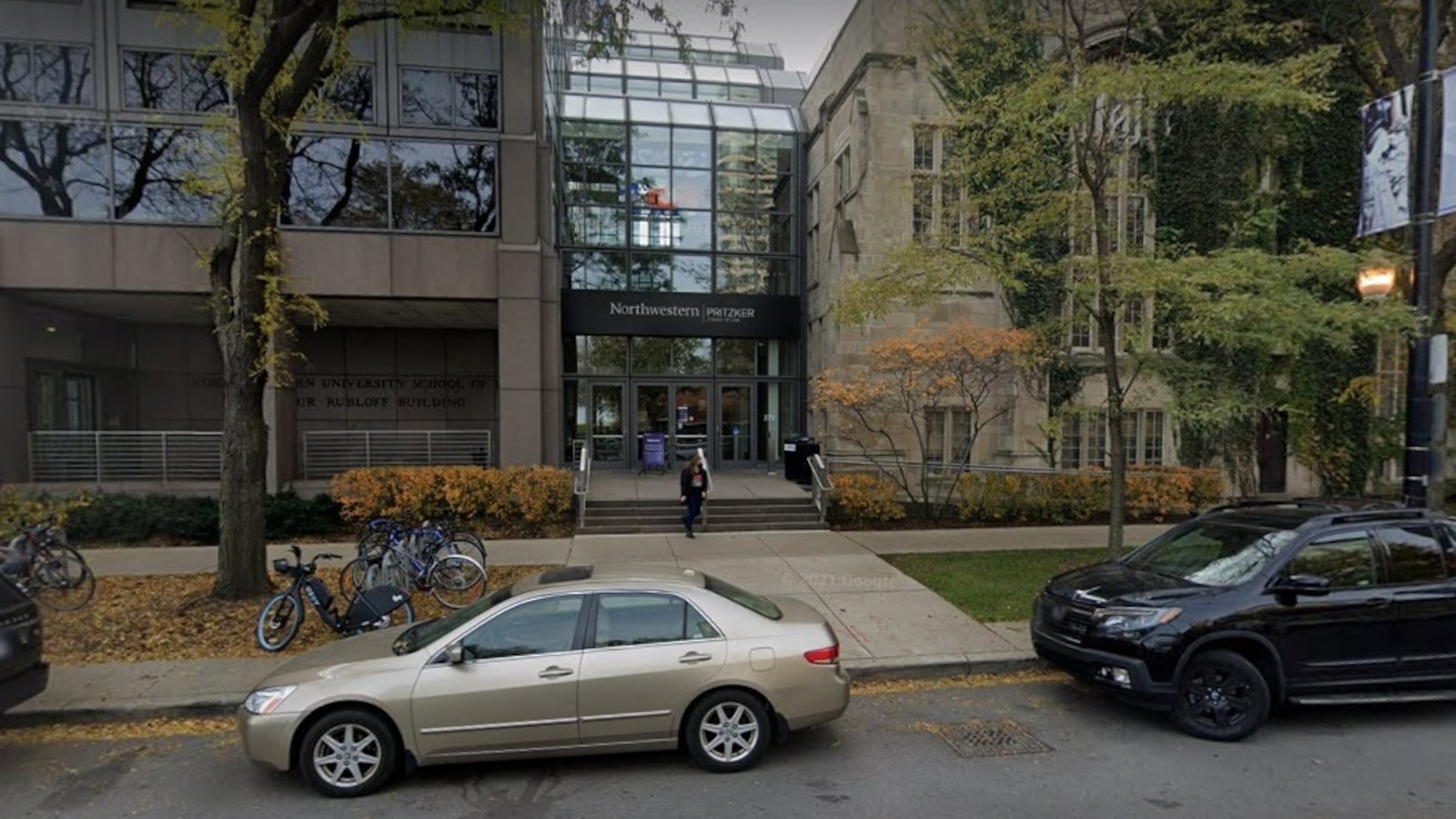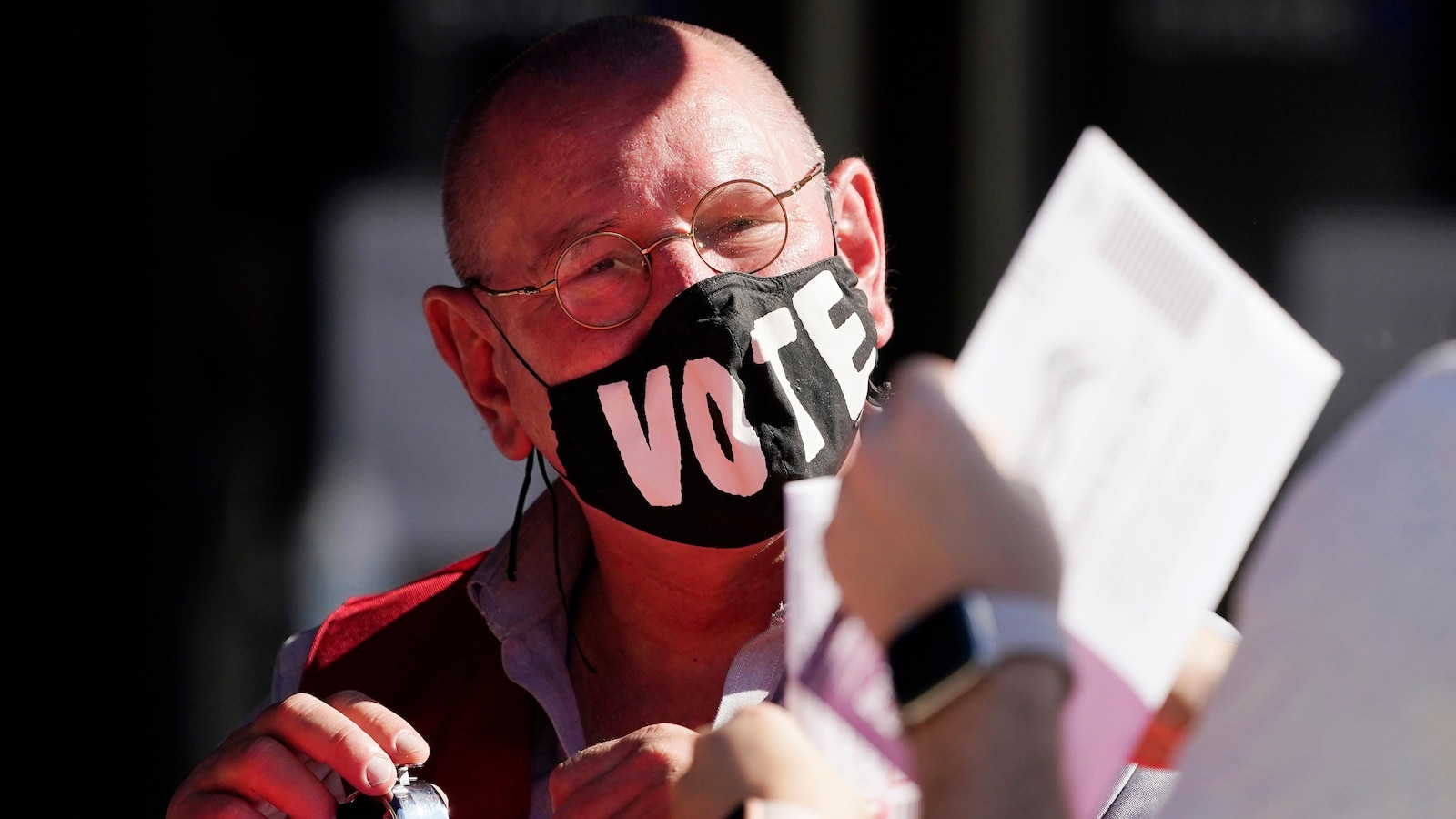
A lawsuit filed against Northwestern University’s law school claims that its hiring practices give preference to less-qualified women and applicants of color, taking away opportunities from better qualified white men.
The lawsuit, which was filed in Federal District Court in Chicago, alleges that faculty hiring practices at universities in the United States are a “cesspool of corruption and lawlessness.”
The suit alleges that Northwestern Pritzker School of Law has instituted a mandate to hire more women and people of color, which the suit claims is a violation of federal law that prohibits discriminating against applicants on the basis of race and sex.
The lawsuit, filed on Tuesday, comes a year after the U.S. Supreme Court struck down affirmative action programs in college admissions.
“Northwestern Pritzker School of Law is among the top law schools in the country, and we are proud of their outstanding faculty,” Northwestern University spokesperson Jon Yates said in a statement to ABC News. “We intend to vigorously defend this case.”
Jonathan Mitchell, the lead attorney behind the suit, did not immediately respond to a request for comment. Mitchell is known for his work as the lawyer behind S.B. 8, the Texas abortion law passed in 2021. He has also represented former President Donald Trump at the Supreme Court for his right to appear on the Colorado presidential primary ballot this year.
The plaintiff, Faculty, Alumni, and Students Opposed to Racial Preferences (FASORP) describes themselves as a voluntary, nonprofit membership organization “formed for the purpose of restoring meritocracy in academia and fighting race and sex preferences that subordinate academic merit to so-called diversity considerations.”
The lawsuit alleges that the law school hires women and people of color “with mediocre and undistinguished records over white men who have better credentials, better scholarship and better teaching ability.”
It says that three of 21 job offers from the law school over the past three years have gone to white men.
FASORP previously tried to sue both New York University and Harvard Law Reviews in 2018 for similar claims of discrimination against white men. In both cases they were unsuccessful, with a judge ruling that the organization and its members lacked standing to sue.
Northwestern Law School has recently come under scrutiny for allegations of bias in its hiring practices against white men. The accusations stem from a report released by a group of concerned students and alumni, who claim that the school has been prioritizing diversity and inclusion initiatives over merit-based hiring decisions.
According to the report, Northwestern Law School has been actively seeking to increase the diversity of its faculty by prioritizing candidates from underrepresented minority groups, women, and LGBTQ individuals. While these efforts are commendable and important for creating a more inclusive and equitable academic environment, some critics argue that they have come at the expense of qualified white male candidates.
The report highlights several instances where highly qualified white male candidates were passed over for positions in favor of less qualified candidates from diverse backgrounds. This has led to accusations of reverse discrimination and bias in the school’s hiring practices.
In response to these allegations, Northwestern Law School has defended its commitment to diversity and inclusion, stating that it is essential for preparing students to practice law in an increasingly diverse and globalized world. The school also points to its efforts to provide equal opportunities for all candidates, regardless of their race, gender, or sexual orientation.
However, critics argue that these efforts have resulted in a lack of diversity of thought and perspective within the faculty, as well as a perception of unfairness and bias in the hiring process. They argue that merit should be the primary consideration in hiring decisions, rather than factors such as race or gender.
The debate over bias in Northwestern Law School’s hiring practices is part of a larger conversation about diversity and inclusion in academia. While it is important for institutions to strive for diversity and representation among their faculty and staff, it is equally important to ensure that hiring decisions are based on merit and qualifications.
Moving forward, it will be crucial for Northwestern Law School to address these allegations of bias and work towards creating a more transparent and equitable hiring process. By fostering a culture of fairness and meritocracy, the school can continue to attract top talent while also promoting diversity and inclusion within its academic community.


